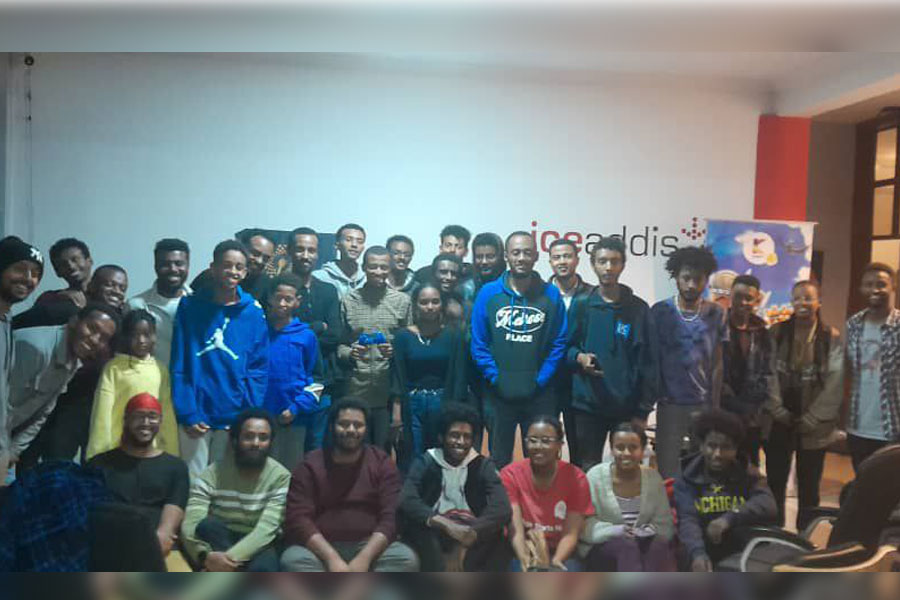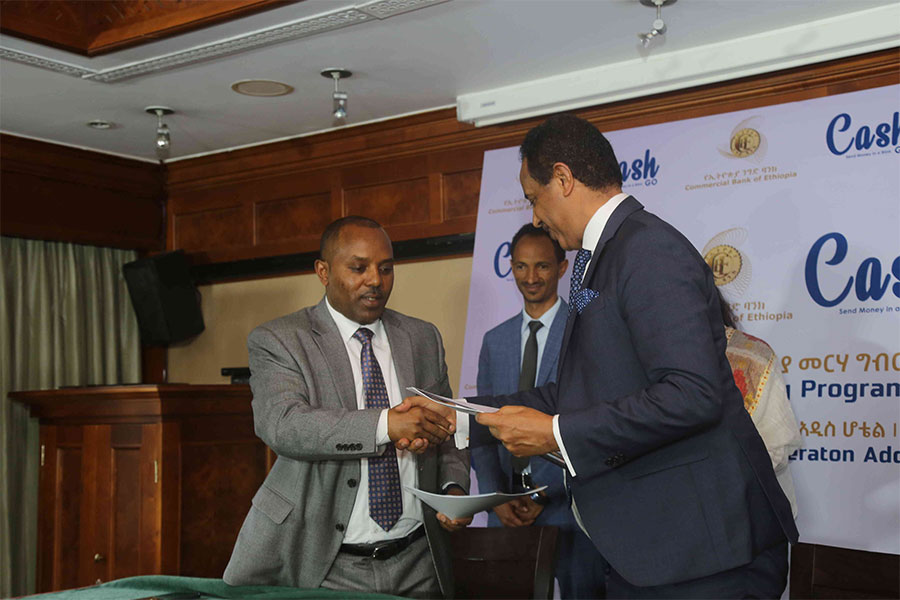
Sunday with Eden | Apr 13, 2025
Nov 9 , 2024
By Birhanu Beshah
Ethiopia is entering its fifth cybersecurity month, marking a milestone in its digital journey toward digital adoption, which has immense rewards. However, it also presents evolving complexity and issues beyond protecting systems as the theme espouses the need for "infrastructure security for digital sovereignty."
As digital transformation reshapes how people, institutions, and societies function, Ethiopians should be keenly aware of this evolution. The federal government has positioned digital technology as a foundation of economic growth, after launching the ambitious policy for "Digital Ethiopia 2025.". The establishment of the Ethiopian Artificial Intelligence Institute (EAII) embodies this commitment to leading-edge technological advancements.
Over the past decade, Ethiopia has made noteworthy inroads in the digital realm. With over two-thirds of the population now accessing mobile coverage, the country is progressing toward enhanced connectivity. Key sectors, especially finance, are increasingly adopting digital solutions to boost efficiency and accessibility, while government offices are digitising public services.
Yet, this rapid digital shift is not without its risks.
A failure in any vital digital system could severely impact the country's socioeconomic configuration. The Information Network Security Administration (INSA) could safeguard digital infrastructures and be a critical defence against such vulnerabilities. The introduction of a digital ID project further demonstrates the dual purpose of reinforcing digital infrastructure while addressing security concerns. Protecting digital assets from cyber-attacks is crucial, but achieving digital sovereignty entails more than security measures.
Ethiopia’s heavy dependence on foreign expertise and technology introduces additional layers of vulnerability, raising important questions about control and self-reliance, especially in initiatives like the digital ID system and TeleBirr, its mobile money service.
While sovereignty often suggests independence, complete autonomy remains an elusive goal in our interconnected digital age. The dominance of tech giants such as Apple, Google, Amazon, Alibaba, Oracle, and Microsoft poses barriers for countries like Ethiopia seeking full control over their digital ecosystems. This calls for a candid assessment of Ethiopia's digital ecosystem beyond safeguarding digital sovereignty and carving out a pathway for technological advancement.
According to the Nobel laureate economist, Paul Krugman, the foundation of future development lies not in independence or interdependence, but in enabling effective systems of intra-dependence. Creating technology is one of these although realising it remains vital. The quest for national digital sovereignty demands a strategic approach to nurturing digital capabilities, cultivating domestic talent, investing in homegrown technologies, and potentially shaping the global digital sector.
While total independence may be unattainable, boosting local content and reducing reliance on foreign systems can enhance control and security. Current development signals a commitment to embracing digitalisation while acknowledging its limitations. Prioritising the development of its digital infrastructure and capabilities, Ethiopia can strive for a form of sovereignty that recognises the realities of a connected world.
PUBLISHED ON
Nov 09,2024 [ VOL
25 , NO
1280]


Sunday with Eden | Apr 13, 2025

Radar | Dec 04,2021

Commentaries | Apr 20,2024

Viewpoints | May 13,2023

Radar | Mar 11,2023

Radar | Oct 18,2025

Radar | Mar 25,2023

Radar | Apr 08,2023

Editorial | May 13,2023

Fortune News | Jan 19,2024

Photo Gallery | 176363 Views | May 06,2019

Photo Gallery | 166577 Views | Apr 26,2019

Photo Gallery | 157073 Views | Oct 06,2021

My Opinion | 136905 Views | Aug 14,2021

Dec 22 , 2024 . By TIZITA SHEWAFERAW
Charged with transforming colossal state-owned enterprises into modern and competitiv...

Aug 18 , 2024 . By AKSAH ITALO
Although predictable Yonas Zerihun's job in the ride-hailing service is not immune to...

Jul 28 , 2024 . By TIZITA SHEWAFERAW
Unhabitual, perhaps too many, Samuel Gebreyohannes, 38, used to occasionally enjoy a couple of beers at breakfast. However, he recently swit...

Jul 13 , 2024 . By AKSAH ITALO
Investors who rely on tractors, trucks, and field vehicles for commuting, transporting commodities, and f...

Oct 18 , 2025
The political establishment, notably the ruling party and its top brass, has become p...

Oct 11 , 2025
Ladislas Farago, a roving Associated Press (AP) correspondent, arrived in Ethiopia in...

Oct 4 , 2025
Eyob Tekalegn (PhD) had been in the Governor's chair for only weeks when, on Septembe...

Sep 27 , 2025
Four years into an experiment with “shock therapy” in education, the national moo...

Oct 18 , 2025 . By NAHOM AYELE
In a sweeping reform that upends nearly a decade of uniform health insurance contribu...

A bill that could transform the nutritional state sits in a limbo, even as the countr...

Oct 18 , 2025 . By SURAFEL MULUGETA
A long-planned directive to curb carbon emissions from fossil-fuel-powered vehicles h...

Oct 18 , 2025 . By BEZAWIT HULUAGER
Transaction advisors working with companies that hold over a quarter of a billion Bir...